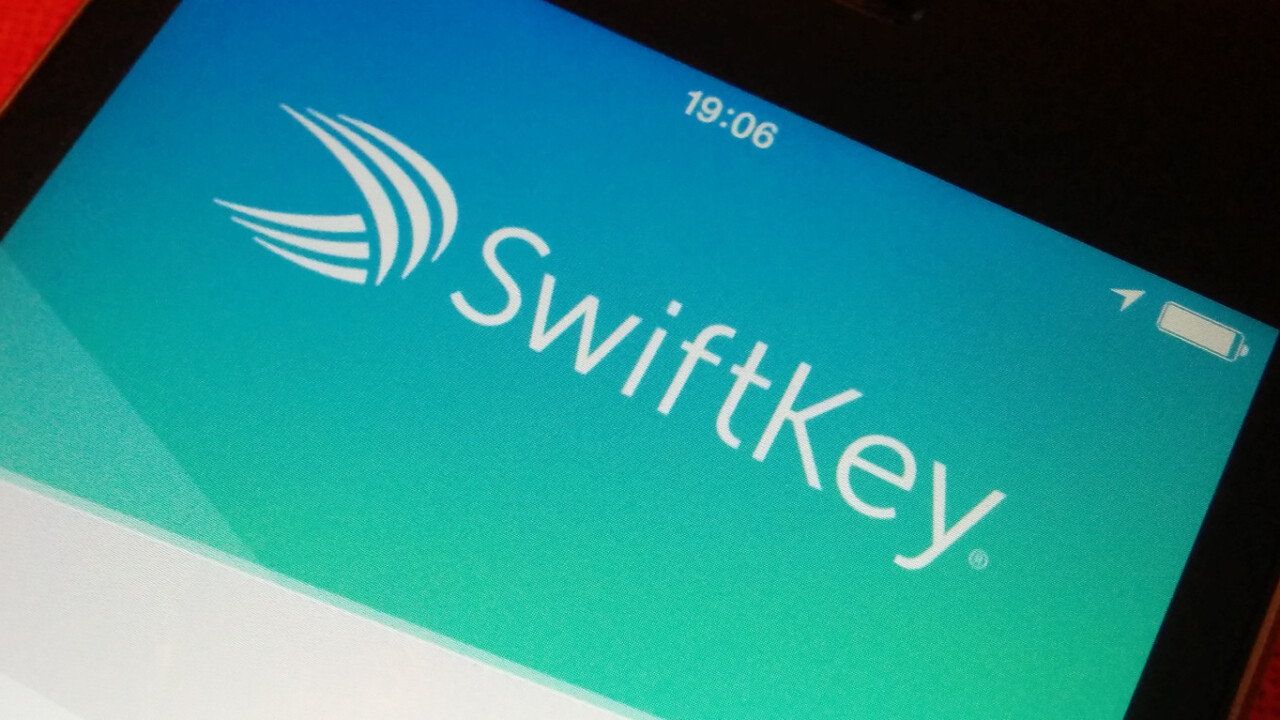
Oh happy day, it’s here at last. For years, I’ve been frustrated by the iOS keyboard. It felt like the cramped and under-developed weak link in what was otherwise a mature and slick operating system. With iOS 8 comes support for third-party keyboards, and with that comes SwiftKey – in my opinion the best keyboard available for Android.
If you’re new to SwiftKey, you’ll find that it’s quite similar to the new default keyboard in iOS 8, but it offers a whole lot more.
Like the default keyboard, it suggests words that you might be typing, giving you three dynamically changing options on buttons above the keys. If one of them is right, you can tap the button and move on to the next word. Also like the default keyboard, SwiftKey learns from your typing style and the kinds of phrases that you tend to use, meaning that the suggestions get better over time.
That’s where the similarities end, however. Given that SwiftKey has a few years’ development on Android under its belt, it’s far more mature a product. To give it a head start in learning your typing style, you can connect up your Gmail, Facebook, Twitter and Evernote accounts, and even allow it to access your Contacts so it can better predict names that you’ll want to use.
Then there’s SwiftKey Cloud. If you’ve used the keyboard on Android in the past in conjunction with its cloud backup service, you can simply log in on the iOS app and have accurate predictions right away.
For those who don’t like to type, SwiftKey offers a Swype-style finger-gliding approach across the keys, called Flow. Although it’s not really for me, I sometimes use it when my thumbs are getting tired after a busy mobile typing session. Handily, you can switch between both input methods fluidly as you please.
Extra features aside, which keyboard is best for straightforward typing – SwiftKey or the default Apple option? Personally, I find the key spacing on Apple’s keyboard a little more comfortable to navigate, but SwiftKey’s more accurate predictions of what I want to say means that it wins out for me overall.
In terms of speed, SwiftKey also has the edge because its best prediction is almost always on the middle button. By contrast, Apple’s implementations sees the ‘correct’ option’s location vary, which makes speed-typing not as, er, speedy.
SwiftKey expects its iOS app to go live on the App Store some time today (Wednesday), after iOS 8 goes live. Don’t confuse it with SwiftKey Note, the proof-of-concept note-taking app the UK-based company released earlier this year.
The keyboard is free and comes with a light and dark theme. Similar to Android, a store offering paid-for, premium themes will be added in the future.
Get the TNW newsletter
Get the most important tech news in your inbox each week.






